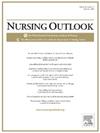Health behavior and social crisis in the era of COVID-19 in Malawi: A decolonizing approach to a qualitative study
IF 4.1
2区 医学
Q1 NURSING
引用次数: 0
Abstract
Background
The rapid spread and severity of COVID-19 brought major health challenges and dealt a heavy blow to key health services and daily life in Africa, including Malawi.
Purpose
To explore and examine the impact of the COVID-19 pandemic on cervical cancer (CC) prevention behavior in Malawi through a decolonized lens.
Methods
A qualitative descriptive study informed by a decolonized perspective was conducted during the COVID-19 pandemic. A purposive sampling was taken from 17 key informant interviews, including, seven Malawian women living with HIV infection (WLWHIV).
Results
Themes explored were that COVID-19 was indiscriminate towards not only health deterioration but also a social crisis and health was no longer an individual problem but a public and global issue across borders.
Conclusion
To uproot global health inequities, templates revolved around Western ways of knowing over national and global health need to be reexamined and methods reinvented to be relevant to local ways of knowing.
马拉维 COVID-19 时代的健康行为和社会危机:定性研究的非殖民化方法
背景 COVID-19 的迅速传播和严重程度给包括马拉维在内的非洲地区带来了重大的健康挑战,并对主要的医疗服务和日常生活造成了沉重打击。结果探讨的主题是,COVID-19 不仅导致健康恶化,还引发了社会危机,健康不再是个人问题,而是一个跨越国界的公共和全球问题。结论要根除全球健康不平等现象,就必须重新审视围绕西方对国家和全球健康的认识方式所建立的模板,并重新设计与当地认识方式相关的方法。
本文章由计算机程序翻译,如有差异,请以英文原文为准。
求助全文
约1分钟内获得全文
求助全文
来源期刊

Nursing Outlook
医学-护理
CiteScore
6.20
自引率
7.00%
发文量
109
审稿时长
25 days
期刊介绍:
Nursing Outlook, a bimonthly journal, provides innovative ideas for nursing leaders through peer-reviewed articles and timely reports. Each issue examines current issues and trends in nursing practice, education, and research, offering progressive solutions to the challenges facing the profession. Nursing Outlook is the official journal of the American Academy of Nursing and the Council for the Advancement of Nursing Science and supports their mission to serve the public and the nursing profession by advancing health policy and practice through the generation, synthesis, and dissemination of nursing knowledge. The journal is included in MEDLINE, CINAHL and the Journal Citation Reports published by Clarivate Analytics.
 求助内容:
求助内容: 应助结果提醒方式:
应助结果提醒方式:


